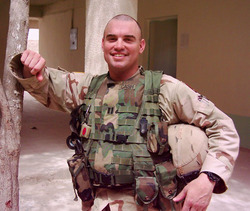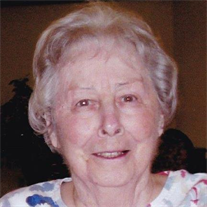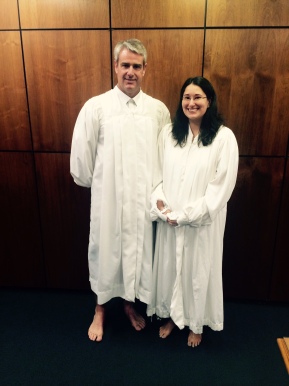
If I am to be truly honest with you, I must confess, that I suppose I am just like most of us here, in that, from time to time, I have my doubts. I cannot help it, and I’d be a hypocrite to deny it. It’s just part of my fragmented human nature.
What I believe makes the Bible so great is the sheer honesty of it. When I slip into the doldrums of doubt and despair, I can always pick up the Bible to discover that I am not alone.
Listen again to these words of Isaiah to the people of Israel in exile:
“Thus says the Lord”—what a powerful statement. This is not a mere prophet’s voice, but the voice of Almighty God, the Holy One, the Redeemer of Israel.
“Thus says the Lord… who is faithful…who has chosen you.” Israel did not reach up and choose God. God reached down and chose Israel. Here, God is the actor, the mover, the shaker. And listen to how God has acted…
“Thus says the Lord…I have answered you…I have helped you…I have kept you…I have given you….” In other words, “I answered your cries in Egypt, I sent Moses to deliver you, I protected you in the wilderness, and I gave you a promised land.”
“And not only have I acted in the past, I promise to continue acting, reaching out and reaching in… giving you light in your darkness…feeding your hunger, quenching your thirst. I promise to protect, lead and guide you. I will transform mountains into roads, lift up highways and show you the way out of captivity…”
“So shout for joy, O heavens, and exult, O earth; break forth O mountains into singing! For the Lord has comforted God’s people, and will have compassion on God’s suffering ones!”
And what did the people say? “Halleluiah! Thine the glory?” No, not even close.
The people in exile responded to the voice of God, the divine acts of the past and the divine promises for the future the same way I suppose you and I sometimes respond—with a lot of doubt.
In verse 14 we read…But Zion said, “The Lord has forsaken me, the Lord has forgotten me.”
Deep within, we know that God has always been with us, never away from us. We know God is for us, not against us. And we believe in our hearts that whatever our future brings, God will always work all things out for the good. However, due to, I suppose, our sinful, finite nature, the reality is that, sometimes, we have our doubts.
I can go to church on Sunday and experience the love and grace of Christ through my family of faith. I’m greeted each Sunday at the door with handshakes and smiles. I listen to the choir sing. I hear the word of God being read. I sing the great hymns of faith, and through it all, I sense the nearness and the intimacy of God. But then, during the week, a thousand different things can happen and change everything.
Fifteen years ago, I became good friends with Christopher Cash, a member of the National Guard.
On October 1, 2003, his unit was deployed to Iraq. As the only person I personally knew in Iraq, I specifically remember praying for my friend Christ the following year, on the Sunday morning before Memorial Day the following year.
About a month later, I picked up the Saturday newspaper and read the headlines on the front page: “Captain Christopher Cash Killed in Iraq.” I tried my best to read the article, but couldn’t. I never made it pass the sub-title: “Cash leaves behind his wife, Dawn, and two children.”
The room started spinning. I felt sick to my stomach. I was lost. And I had never felt more alone. With Zion I wanted to cry out, “The Lord has forsaken me. The Lord has forgotten me.”
One moment we’re filled with faith and hope; we sense the intimate presence of God. And in the next moment, we sense only God forsakenness.
A thousand different things can happen…the telephone rings in the middle in the night…there’s been a terrible accident…your child is sick…your spouse is laid off from work…someone who you are supposed to be able to count on for encouragement, lets you down…a terrorist or a crazed gunman attacks…a tornado or earthquake strikes…war rages…the doctor gives a grim diagnosis…a loved one dies.
One day we are basking in the presence of God. We know we’ve been chosen. Our prayers have been answered. We’ve been helped. We have received and kept by an eternally faithful God. We have confidence that as God has not let us down in the past, God will certainly not desert us in the future. God will continue to reach out and reach in, transform, protect, shed light in our darkness, feed and quench, protect, lead and guide.
But then something happens; and just a short time later, with Zion we cry out, “The Lord has forsaken me. The Lord has forgotten me.”
This is why I love the Bible. I love the sheer honesty of it! In spite of everything we know about God, what God has done, and what God promises to do, like Zion, we fragmented and finite human beings still have our doubts.
Now listen to the good news. The good news is that our God never gives up on us. God never leaves us to our own devices. God never deserts us with our doubts, but always responds to our doubts. God keeps moving, keeps reaching out and reaching in.
In verse 15, we read God’s response to our doubt. “Can a woman forget her nursing child, or show no compassion for the child of her womb? Even these may forget, yet I will not forget you. See, I have inscribed you on the palms of my hands…”
Tomorrow, our nation remembers those members of our armed forces who have made the ultimate sacrifice. Today, our church remembers members of our family of faith who have died during the past year. But this is not why we have gathered here for worship. We gather to worship this day, not because we remember them, but because our God remembers them.
For our remembering is shallow and weak; our remembering is fraught with doubt; laden with despair. God’s remembering is deep, unfailing. God’s memory endures forever. God responds to our doubt with the assurance that we and our loved ones will never be forgotten by God because they, with us, are in the very hands of God.
And, as Christians, we know something about the hands of God, don’t we? The life, death and resurrection of Jesus Christ teaches us that the hands of our God are always responding to our brokenness, always working, always doing all they can do to work all things together for the good, always creating and recreating, healing and transforming and resurrecting.
As my heart broke upon learning about by friend’s violent death in Iraq. I must confess I had my doubts. I am sure that his wife Dawn had her doubts. But thank God that God did not give up on us. God responded to our doubts the hands of God kept working, kept moving, kept creating, kept resurrecting. And today, nearly 14 years after Chris’ sacrifice for this country, Dawn has helped to raise nearly a half million dollars in scholarship money in Chris’ memory to assist needy students with college educations.
And for me, well, I still have my doubts from time to time; however this Memorial Day, because of Chris and so many others who gave their lives serving and protecting this country, I possess a deeper appreciation for our country and for this miraculous gift we call life. Because of their sacrifice, I possess a profound desire to serve others more faithfully, to love others more deeply, and to preach the message of peace more fervently.
But here’s the true miracle: Because God never gives up on any of us, because we are indeed in the very hands of God, each time in our humanness we have our doubts, each time we wonder if our faith is even real, that God is even real, our faith miraculously grows stronger.
Thanks be to God that as the very hands of God picked my friend Chris up from the battlefield to hold forever, those very hands also hold us.






